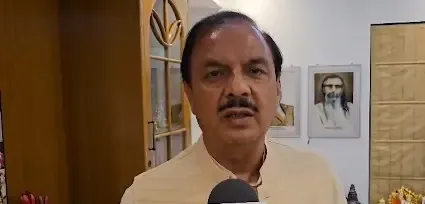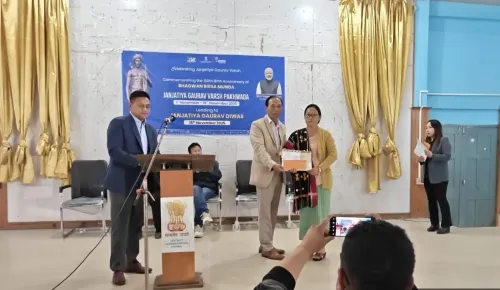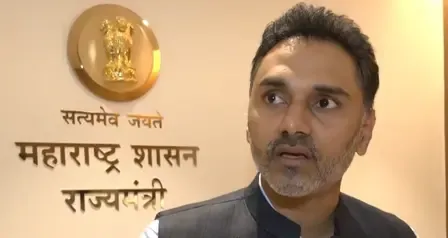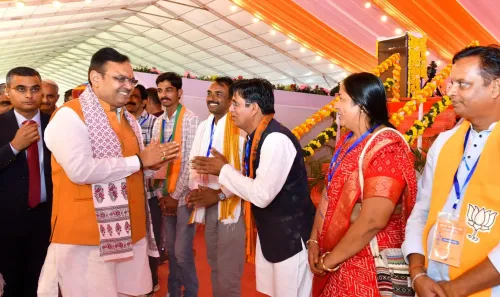Did the Punjab Cabinet Approve the Recruitment of 311 Nurses?
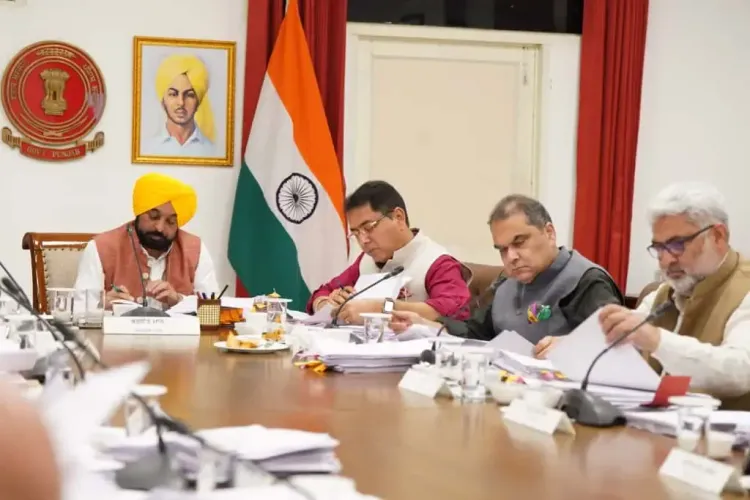
Synopsis
Key Takeaways
- 311 nurses to be recruited in Punjab.
- Over 400 additional nursing positions are also being filled.
- 800 doctors recruited to meet healthcare demands.
- Navi Dishaa Scheme launched for menstrual hygiene.
- Special session of Vidhan Sabha on November 24.
Chandigarh, Nov 15 (NationPress) The Punjab Cabinet, led by Chief Minister Bhagwant Singh Mann, has taken a significant step by approving the hiring of 311 nurses in the Health and Family Welfare department. This decision is pivotal for enhancing the state’s healthcare delivery system.
A representative from the Chief Minister’s Office highlighted that this move reflects the government's dedication to elevating patient care and boosting the operational capacity of public health facilities. This initiative forms part of a broader strategy to address critical human resource shortages in hospitals and healthcare institutions.
Moreover, the recruitment process for over 400 additional nurses is already in progress, aiming to ensure that healthcare facilities are sufficiently staffed to provide high-quality nursing services. The new nurses are expected to join the workforce by the first week of December.
Notably, the government has successfully finalized the recruitment of 800 doctors through a transparent selection process to cater to the increasing demand for healthcare professionals across both primary and tertiary care levels. More than 175 specialist doctors have been employed in key areas including paediatrics, medicine, obstetrics and gynaecology, and surgery, thereby reinforcing specialized services in government hospitals.
The Cabinet also approved the revival of 16 Child Development Project Officer (CDPO) positions and recruitment via the Punjab Public Service Commission to effectively implement various state and national schemes related to social security, women, and children.
Additionally, the Cabinet sanctioned the establishment of a distinct cadre of employees for posting at the Bhakra Beas Management Board (BBMB). It was observed that numerous posts reserved for Punjab remain unfilled, leading the board to resort to its own cadre for staffing these positions.
Furthermore, the Cabinet has authorized the creation of 2,458 positions for recruitment across various departments and has adopted regulations concerning these posts. It also approved an increase in the retirement age for administrative positions promoted from the medical teaching faculty within the Department of Medical Education and Research from 62 to 65 years.
This change aligns the retirement age with that of adjacent states like Haryana and Chandigarh, as well as Government of India institutions, thereby enhancing faculty retention and institutional stability, and strengthening the overall medical education landscape.
Furthermore, the Cabinet endorsed the 10th special session of the Vidhan Sabha in Anandpur Sahib to commemorate the 350th martyrdom anniversary of Guru Tegh Bahadur. This special session is scheduled to take place at Bhai Jaita ji in the holy city on November 24. The Cabinet also approved the launch of the Navi Dishaa Scheme, aimed at promoting menstrual hygiene by providing free sanitary napkins to adolescent girls and vulnerable women.
This initiative will prioritize awareness, education, behavior change, and free distribution of sanitary napkins to those in need. Under this scheme, free napkins will be supplied to all menstruating women aged 15-44, particularly targeting marginalized groups such as school dropouts, below-poverty-line women, slum residents, itinerant communities, and the homeless.

